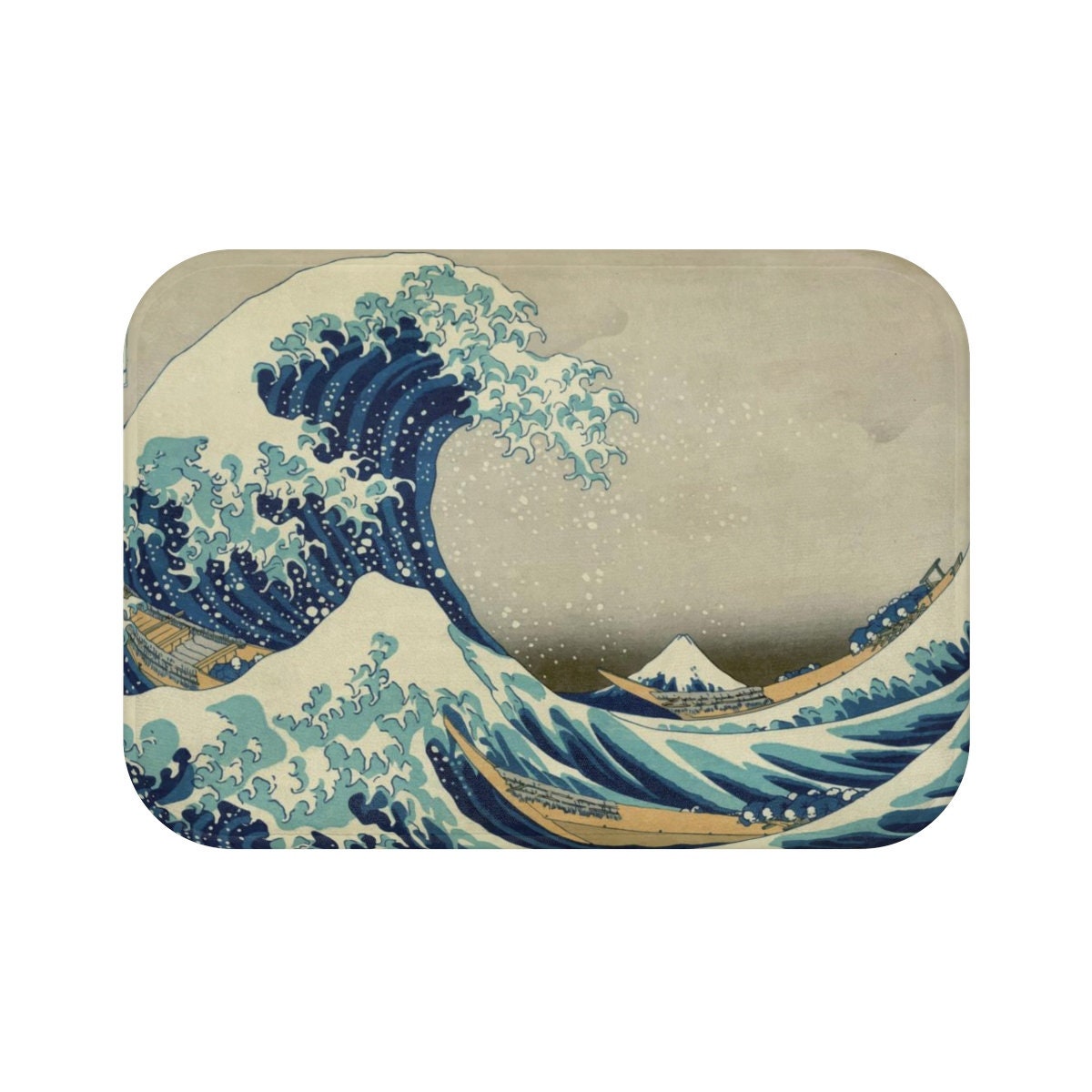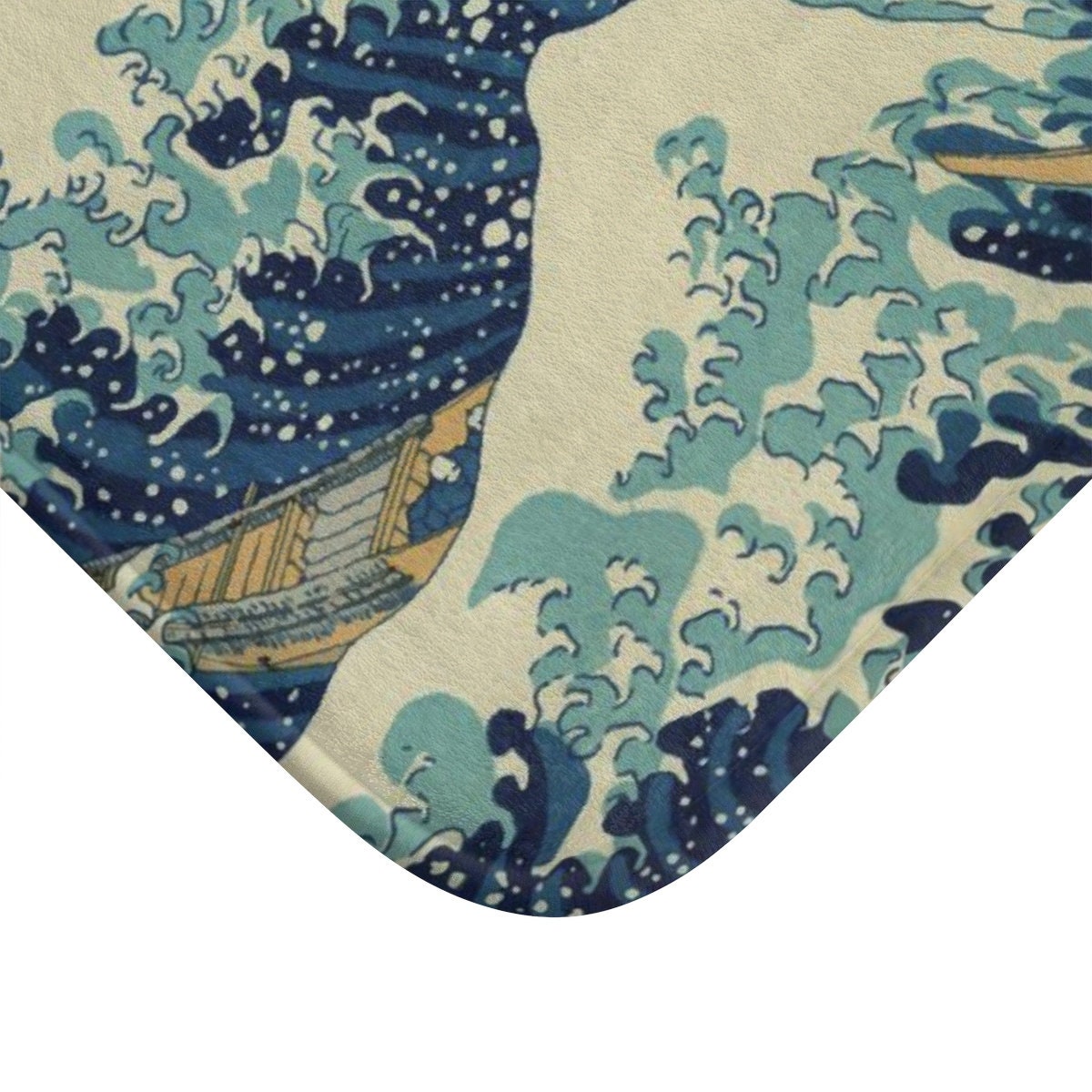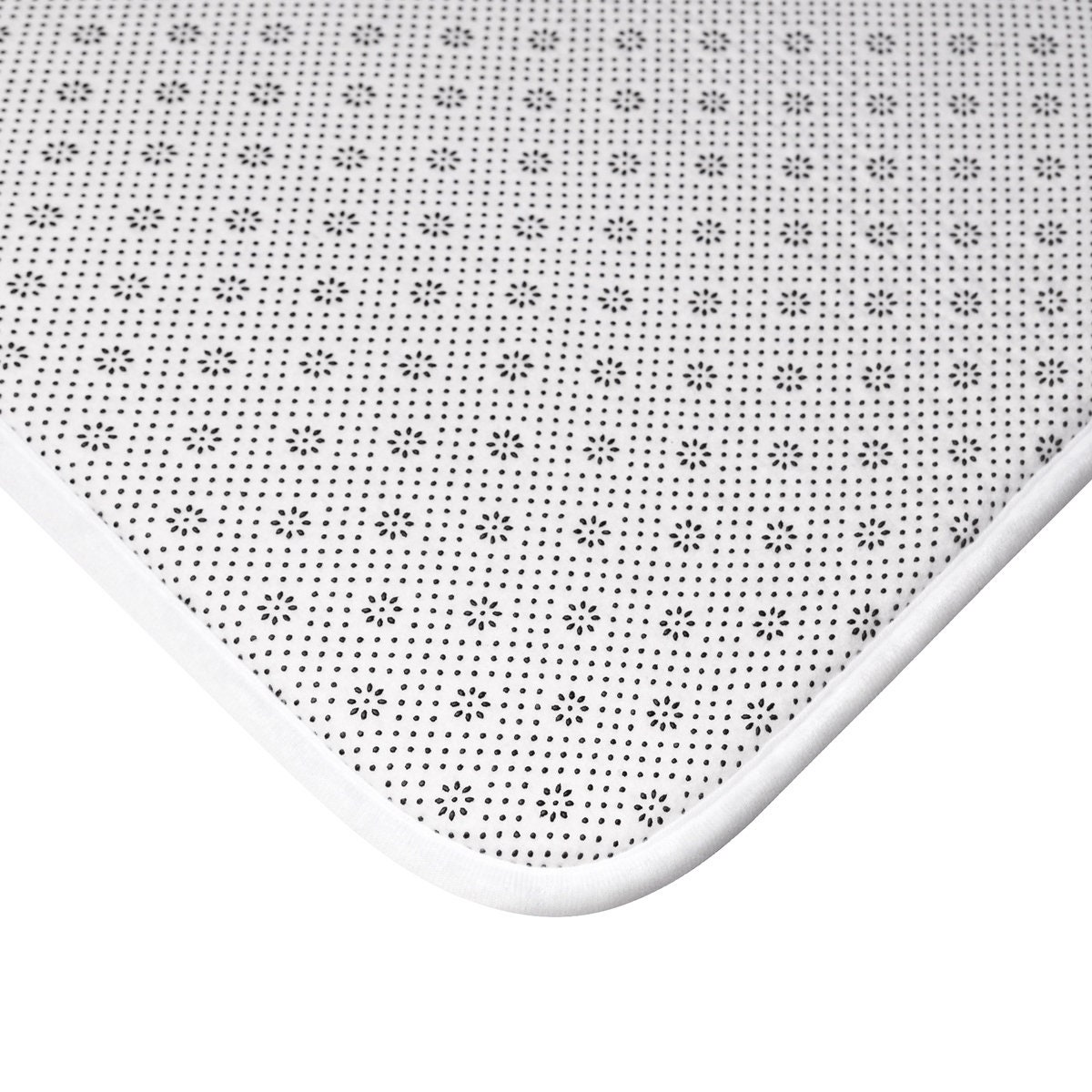The Great Wave off Kanagawa, 24"x17", Bath Mat, From A Vintage Woodblock Print
$24.99
More Japanese artwork: https://www.vintageartwork.com/search?q=japanese
Design is from a woodblock print by the Japanese ukiyo-e artist Hokusai. It was published sometime between 1829 and 1833, in the late Edo period as the first print in Hokusai's series Thirty-six Views of Mount Fuji. It is Hokusai's most famous work, and one of the most recognizable works of Japanese art in the world.
The image is from a woodblock print over 180 years old, so there are some blemishes. They were deliberately left on the image, so as not to diminish its history.
More personalization options for the most private room in one's house. This bath mat is as practical, as stylish - the anti-slip backing keeps the bath mat firmly in place and reduces the risk of slipping.
.: 100% Microfiber
.: Anti-slip backing
.: Binding around the edges
.: Dimensions: 24"x17"
Shipping from United States
Processing time
1-7 business days
Customs and import taxes
Buyers are responsible for any customs and import taxes that may apply. I'm not responsible for delays due to customs.
Payment Options
Returns & Exchanges
I gladly accept returns and exchanges
Just contact me within: 14 days of delivery
Ship items back to me within: 30 days of delivery
I don't accept cancellations
But please contact me if you have any problems with your order.
The following items can't be returned or exchanged
Because of the nature of these items, unless they arrive damaged or defective, I can't accept returns for:
- Custom or personalized orders
- Perishable products (like food or flowers)
- Digital downloads
- Intimate items (for health/hygiene reasons)
Conditions of return
Buyers are responsible for return shipping costs. If the item is not returned in its original condition, the buyer is responsible for any loss in value.
Frequently Asked Questions
What is All-Over-Print (AOP)?
All-Over Print (AOP) is a printing method that uses dye-sublimation to print a design onto polyester. During the dye sublimation process the dye is absorbed into the fabric. Since, it is not printed on the surface, like most t-shirts, it provides for a fantastic soft-to-the-touch feel and superior breathability.
AOP is a more time consuming method than screen printing or direct-to-garment (DTG) printing, so the prices are higher and the production times are longer, but the results are most definitely worth it.
Advantages of AOP:
The design won't peel off, unlike typical screen printing.
The design is part of the fabric of the item, so it will last as long as the item does.
The intensity of color is often unmatched.
What is Giclée?
Giclée (pronounced zhee-CLAY or often gee-CLAY) is a printing process that creates a museum quality, archival print. Special acid-free, paper is printed with fade resistant ink using a state-of-the-art, large format inkjet printer.
What is a gallery wrap canvas?
Gallery wrap is a style of displaying a canvas that doesn't show any visible staples or nails holding the fabric to the wooden stretcher bars. This style of canvas is intended to be hung unframed.
What is a gallery mirror wrap canvas?
Mirrored edges (mirror wrap) is used to show the whole image on the main surface, rather than printing the edges of the image on the sides (image wrap) of the canvas frame. It is usually used when there is necessary detail on the edges of the image. Image wrap is used when the focal point of the image is in the center.


